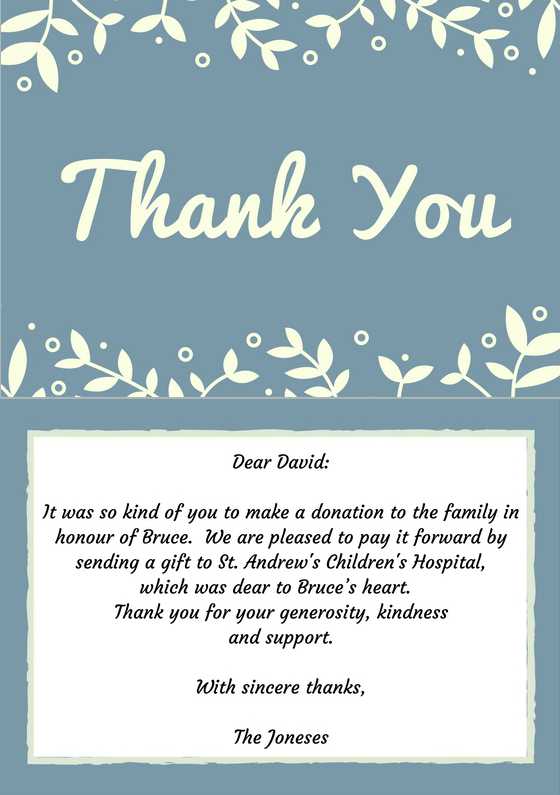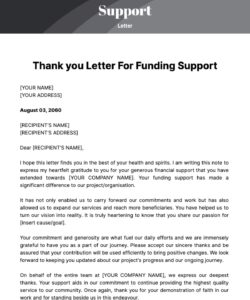Losing a loved one is undeniably one of life’s most challenging experiences. During such a profound time of grief, processing emotions and navigating new realities can feel overwhelming. Yet, amidst the sorrow, the support and kindness from friends, family, and community members often shine through, offering much-needed comfort and practical assistance.
These acts of compassion, whether it’s a heartfelt card, a comforting meal, a beautiful floral arrangement, or simply a warm embrace, make a significant difference. Acknowledging this outpouring of love and support, while difficult, can be a meaningful step in your healing journey. It’s a way to honor not just the person you lost, but also the connections that sustain you.
When the time feels right, expressing your gratitude can provide a sense of closure and appreciation. You might be wondering how to put your feelings into words, especially when your heart is heavy. This guide aims to offer thoughtful funeral thank you wording ideas to help you convey your appreciation gracefully and sincerely, reflecting on the support you’ve received during this tender period.
The Heartfelt Act of Expressing Gratitude After a Loss
In the aftermath of a funeral, when emotions are still raw and life feels profoundly different, the idea of writing thank you notes can seem like another daunting task. However, sending a thank you message isn’t about formality or obligation; it’s a genuine gesture of appreciation that acknowledges the care and compassion extended by others during your time of sorrow. It communicates that their kindness was seen, felt, and truly valued.
Many people wonder about the right time to send these notes. There’s no strict deadline, so please don’t feel pressured to rush. Grieve at your own pace. Generally, sending them within a few weeks to a couple of months after the funeral is common, but it’s perfectly acceptable to send them later if that’s what you need. People understand that grief takes time, and your well-being is the priority.

When crafting your messages, remember that sincerity is paramount. A handwritten note, even if brief, often carries more weight than a typed one, as it conveys a personal touch. You don’t need to write a lengthy letter; a few genuine sentences are more than enough. The goal is to express your appreciation, not to recount your grief in detail to each person.
Try to be specific in your thank you whenever possible. Instead of a generic “thank you for everything,” mention the specific act of kindness. For example, “Thank you for the beautiful roses” or “We are so grateful for the delicious meal you brought.” This shows that you noticed and remembered their particular contribution, making the message feel more personal and heartfelt.
Ultimately, these notes are a reflection of your gratitude for the community that rallied around you. They are a quiet testament to the enduring bonds of friendship and family, offering a small but significant way to recognize the support that helped you navigate through one of life’s most difficult journeys. Don’t underestimate the power of these simple expressions of thanks in reinforcing those vital connections.
Thoughtful Funeral Thank You Wording Ideas for Various Kinds of Support
Finding the right words to express your appreciation can be challenging, but a few sincere sentences are always deeply cherished. Here are some funeral thank you wording ideas tailored for different types of support you might have received:
-
For General Support and Presence: “Thank you for your comforting presence during [Deceased’s Name]’s funeral. Your support meant the world to us during this difficult time.”
-
For Flowers: “The beautiful floral arrangement you sent was such a thoughtful tribute to [Deceased’s Name]. We truly appreciate your kindness and remembrance.”
-
For Food or Meals: “Thank you so much for the delicious meal you brought over. It was such a comfort and helped us immensely during a time when cooking was the last thing on our minds.”
-
For a Donation in Memory: “We are deeply touched by your generous donation to [Charity Name] in memory of [Deceased’s Name]. It is a beautiful way to honor their life.”
-
For Specific Practical Help: “We are so grateful for your help with [specific task, e.g., organizing the reception / driving family members]. Your assistance was invaluable and eased our burden significantly.”
-
For Emotional Support and Listening: “Thank you for your kind words and for listening so patiently. Your understanding and empathy provided much-needed comfort when we needed it most.”
-
For Officiant/Clergy: “Our sincere thanks for officiating [Deceased’s Name]’s service. Your thoughtful words brought peace and comfort to all of us, and truly captured their spirit.”
-
For Pallbearers: “Thank you for serving as a pallbearer for [Deceased’s Name]. It was an honor to have you, and your strength and support were deeply appreciated.”
-
For Condolence Cards/Letters: “Thank you for your heartfelt card. Your memories of [Deceased’s Name] brought us comfort and a smile during a sad time.”
-
For Traveling a Long Distance: “We were so touched that you traveled all the way from [Location] to be with us. Your effort meant so much and truly showed your love for [Deceased’s Name] and our family.”
-
For Childcare/Pet Care: “Thank you for looking after [Child’s Name/Pet’s Name] during the funeral. Knowing they were in loving hands allowed us to focus on the service and our family.”
-
For Professional Colleagues: “On behalf of our family, we wish to express our sincere gratitude for your support and kind sentiments during this difficult time. Your understanding has been a great comfort.”
Taking the time to send these notes, even if just a few, can be a healing act in itself. It allows you to reflect on the positive connections and acts of kindness that emerged during a challenging period, reinforcing the strength of human connection. Remember, there’s no right or wrong way to express gratitude; what matters most is the genuine sentiment behind your words.
Allow yourself grace and patience as you navigate this process. The love and care you received are a testament to the impact your loved one had, and your acknowledgment of that support is a beautiful continuation of their legacy. Your healing journey is unique, and every step, including these expressions of thanks, contributes to finding peace and remembrance.


